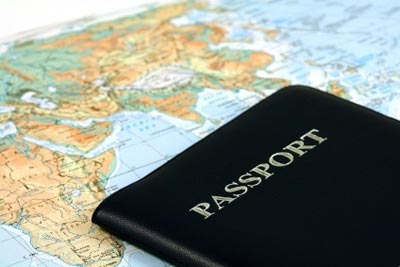Todd: So Mark, when I was in London I saw so many people from New Zealand and actually everywhere in the world I meet so many people from New Zealand, but you have such a small population. Is anybody still in New Zealand?
Mark: Yeah, I think the Kiwis and Aussies that you see in London and in other parts of England and Europe, many of them are young Kiwis doing what we call ‘the big OE’.
Todd: The big OE? What’s that?
Mark: ‘The big overseas experience’ or ‘the big overseas excursion’. So, a lot of people, when they finish school or finish university, they take a year off and because New Zealand is located a long way from anywhere, instead of taking a trip from one country to another for a week, like many Europeans do, when young New Zealanders travel they tend to go backpacking a lot, get a part time job working in a pub or a restaurant in London to make more money and then they will travel for 3 or 4 months through Europe. They may go back to England and work a bit more and then see a few more countries, and then maybe after a year or so they’ll start heading back towards home. That’s ‘the big OE’.
Todd: So did you do ‘the big OE’?
Mark: Sort of, yeah. After I’d finished work at…after I’d finished university I worked for a few months and yes, I did go to England. I’d applied for a job and then hadn’t heard back so I started my OE and I did it for a few months and then I actually found out I’d got a job, so I cut the OE short to join the working world.
Todd: Ok, what countries besides London are popular for Kiwis to go and visit?
Mark: Um, now…
Todd: Or what cities or places?
Mark: Now I think they’re getting more adventurous. Before it used to be very euro-centric, but now a lot more people are going through Asia and going to more exotic locations: maybe South America, some people travel to Africa. The old ties to England are still there; I think that’s still the first location for many people: save a bit of money and then see the rest of the world.
Kiwis and Aussies
The Kiwis and Aussies you see in London are young Kiwis doing what we call 'the big OE.'
'Kiwis' are people from New Zealand, and 'Aussies' are people from Australia. Notice the following:
- We met a really cool group of Kiwis last night.
- Most of her teachers have been Aussies.
take a year off
A lot of people, when they finish school or university, they take a year off.
Here, 'take a year off' refers to having a year after university and before you start school where you do some traveling or don't follow the typical steps that most people follow. Notice the following:
- She took a year of after high school to make money for college.
- Many of my friends couldn't understand why I was taking a year off.
heading back
Then, maybe after a year or so, they'll start heading back towards home.
When you 'head back' to a place, you return somewhere that you have already been. In this case, you return home. Notice the following:
- Will you be heading back to Vietnam in the near future?
- We will probably head back home sometime after 7 o'clock.
cut the OE short
I actually found out I'd got a job, so I cut the OE short to join the working world.
If you 'cut something short,' you decrease the amount of time that you had planned on doing it. So, for example, if you had planned on going for a whole year, maybe you only stay for 7 months. Notice the following:
- He wasn't feeling very well today, so he decided to cut his day short.
- We decided to cut the meeting short, because we were getting nowhere.
euro-centric
Before, it used to be very euro-centric, but now more people are going through Asia.
When you say something is 'euro-centric,' it means there is a strong focus on Europe, or, in this case, that most people travel in Europe. Notice the following:
- A lot of the travel routes in this book are very euro-centric.
- Thirty years ago, most backpackers had a very euro-centric travel plan.
the old ties to England
The old ties to England are still there, and I think that's still the first location for many people.
Here, 'ties' refers to connections. In Australia and New Zealand, many people have family that came from one of those countries, so you can say that they have ties. Notice the following:
- Many people in this area still have old ties to Spain.
- My family still has old ties to Norway.
Vocabulary Quiz
short • euro-centric • ties




















